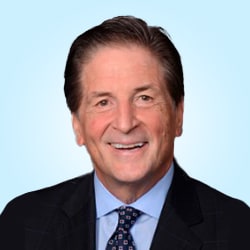If there is one phrase we continue to hear more than any other term as we navigate through our 'new normal' world, it is 'stressed out.'
But what is stress? What does it look like and feel like? More importantly, what can we do to prevent the normal stress and 'lawyer anxiety' so common in our profession from developing into the physically and emotionally draining state known as Burnout? Has it really become an occupational hazard?
Recent studies have shown that there has been a dramatic increase in impairment due to alcohol and substance misuse, gambling addiction, and mental health disorders among members of the legal profession. The statistics are compelling and clearly indicate that 1 out of 3 attorneys will likely have a need for substance use or mental health services at some point in their careers.
- The Early Warning Signs of Impairment
- Symptoms of stress and burnout that are particularly prevalent among members of the legal profession and how our professional culture may be contributing to the problems we face
- The discussion will include the basic stress reactions, both physical and psychological; the difference between healthy stress and distress
- Realistic Prevention Strategies
- Guidelines for a “master plan,” including realistic prevention strategies that work
- Why Lawyers?
- Why lawyers and judges are at especially high risk to develop mental health and addiction disorders
- Ethical Considerations
- The relationship between impairment and unethical conduct
- Barriers
- The barriers that prevent members of the legal profession from seeking the help they need
- Questions & Answers (as time permits)
This webinar is divided into section summaries, which you can scan for key points and then dive into the sections that interest you the most.
Please note this AI-generated summary provides a general overview of the webinar but may not capture all details, nuances, or the exact words of the speaker. For complete accuracy, please refer to the original webinar recording.
*CLE credit is only available to Justia Connect Pros. Not a Pro? Upgrade today>>
Status: Approved
Credits: 1.00 Wellness Competence
Earn Credit Until: June 30, 2026
Status: Approved
Credits: 1.00 Substance Abuse/Mental Health
Difficulty: All Levels
Earn Credit Until: December 31, 2025
Status: Approved
Credits: 1.00 Professional Well-Being
Earn Credit Until: February 28, 2026
Status: Approved
Credits: 1.00 Legal Ethics/Professional Responsibility
Earn Credit Until: January 31, 2026
This presentation is approved for one hour of Wellness Competence CLE credit in California, one hour of Substance Abuse/Mental Health CLE credit in South Carolina (all levels), and one hour of Professional Well-Being CLE credit in North Carolina. This course has been approved for Minimum Continuing Legal Education credit by the State Bar of Texas Committee on MCLE in the amount of 1.00 credit hours, of which 1.00 credit hours will apply to Legal Ethics/Professional Responsibility credit.
Justia only reports attendance in jurisdictions in which a particular Justia CLE Webinar is officially accredited. Lawyers may need to self-submit their certificates for CLE credit in jurisdictions not listed above.
Note that CLE credit, including partial credit, cannot be earned outside of the relevant accreditation period. To earn credit for a course, a lawyer must watch the entire course within the relevant accreditation period. Lawyers who have viewed a presentation multiple times may not be able to claim credit in their jurisdiction more than once. Justia reserves the right, at its discretion, to grant an attendee partial or no credit, in accordance with viewing duration and other methods of verifying course completion.
At this time, Justia only offers CLE courses officially accredited in certain states. Lawyers may generate a generic attendance certificate to self-submit credit in their own jurisdiction, but Justia does not guarantee that lawyers will receive their desired CLE credit through the self-submission or reciprocity process.

Lawyers Concerned for Lawyers of Pennsylvania
Brian S. Quinn, Esquire is a licensed attorney in Pennsylvania who currently serves as the Education and Outreach Coordinator for Lawyers Concerned for Lawyers of Pennsylvania, Inc., a Lawyers Assistance Program established in 1988 for the purpose of helping lawyers, judges and law students recover from alcoholism, drug addiction and mental health disorders. Read More ›

Jeffrey S. “KD” Meyers, M.D., L.Ac., F.A.A.P.M.R. is a board-certified physician, integrative wellness consultant, and educator with an extensive background in rehabilitation medicine, and holistic approaches to medicine, the arts, and spirituality. He received his undergraduate degree from the University of Pennsylvania and his Doctorate in Medicine (M.D.) from the University of Colorado School of Medicine. He received his post-graduate specialty training in Physical Medicine and Rehabilitation at the Hospital of the University of Pennsylvania. He is a Diplomate of the American Board of Physical Medicine and Rehabilitation, a Fellow of the American Academy of Physical Medicine and Rehabilitation, a Fellow of the College of Physicians of Philadelphia, and a member of the Waring-Eiseman Society for Humanities in Medicine. He received a Certificate in Psychedelic Therapies and Research from the California Institute of Integral Studies (CIIS) where he is a mentor and part of the program staff. He completed ketamine-assisted psychotherapy training through multiple programs. Read More ›


